Grangemouth Plasterers: Any time you're engaged in home improvements or renovations on your property or business in Grangemouth it is pretty much certain that you will either need to have some affected plaster walls re-skimmed or fresh plaster administered to a new wall. Most would agree that plastering is a really skillful craft and whilst you may be quite useful around the house, it's not really something that you ought to attempt on your own, except if you have extreme confidence in your capabilities. This particularly applies if there are ceilings that need plastering, since you'll probably get yourself and your house in a bit of a mess if you choose to endeavour to do this. You'd definately be wise to call in a professional plasterer to carry out this work, and even though you should have no hassle tracking down a plasterer in Grangemouth, securing one who's got a slot for your job might be somewhat more difficult. Plasterers, as with many tradespeople, tend to be fully booked up, and so if feasible try to book someone in a few months in advance.
When embarking on a variety of home restoration assignments, you have to consider the possibility of plastering work being necessary. It may be plastering over an old artexed ceiling, installing mouldings or coving before decorating, plaster skimming dry lining or latex screeding. But of course, any one of an array of plastering related jobs may be necessary.
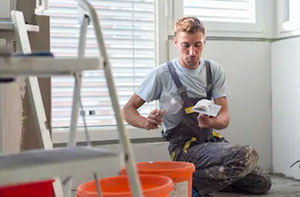
Ask to see a few photos of earlier completed projects when talking to potential Grangemouth plasterers, anyone who genuinely knows their stuff will be happy to agree to this, and have nothing to hide. This isn't the kind of work you should be giving to "cowboys". You may run into huge problems as work progresses when the quality of the plastering is sloppy, and these are not always immediately apparent.
As soon as your newly plastered wall is given a coat of emulsion, any imperfections will quickly become noticeable. This effect will be even more emphasized when the uneven surfaces are viewed in bright sunshine. It should generally be possible to find decent plasterers in Grangemouth, so why choose an inferior one?
Being smooth and flat is the most vital attribute of plastered surfaces, since they're simply a base onto which other materials are applied. Minor blemishes and cracking can be easily repaired with filler later on with very few issues, but irregular surfaces are difficult to cover up. Areas that are badly plastered can cause problems with the fitting of skirtings, the fitting of kitchen units, any area of wall tiling and the wallpapering and painting of walls and ceilings.
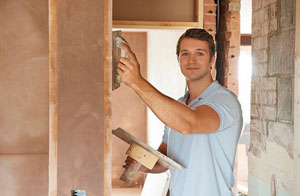
The best Grangemouth plasterers have reputations to keep up and will invariably aim to get the perfect finish directly from the trowel, wherever feasible. A plastered ceiling or wall should never have to be sanded down to get a good finish, it ought to only require a quick rub with fine sandpaper before it is decorated. In fact, if any substantial amount of sanding is required, you can surmise that your plasterer was not as skilled as you expected. If the use of electric sanders is becoming commonplace, there's certainly something isn't right with your plasterer.
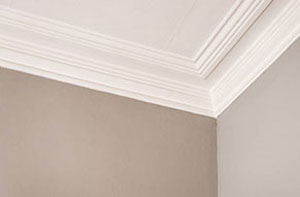
In recent times, a typical reason to call in a plasterer is to cover an old artexed ceiling. Today out of favour in Grangemouth, artex was the most popular decorative finish for ceilings during the nineteen seventies and eighties. Plastering over that old artexed ceiling to make it look more sleek and contemporary is something that most plasterers in Grangemouth will jump at the chance to do. Most plasterers will also be glad to slap on a coat of artex if you would like to bring back that 1970's style for your ceilings.
DIY Plastering Grangemouth: While it's always better to bring in a professional plasterer in Grangemouth when you have plastering work that needs to be undertaken in your home, it is always possible to have a go at doing it yourself if you are reasonably good at DIY, and have the self-belief to tackle it. As a novice plasterer it's a wise idea to start your plastering adventure by doing a test run on an out-of-sight area or a spare bedroom, in particular one that's already got a poor plastered finish and that can only be improved by your early efforts. This is likely to be a lot less stressful for you, and allow you to spend a little while mastering your newly acquired skills. Within reason, it's possible for you to re-plaster a wall surface as many times as you want, therefore if you make a bodge up of it at the first attempt, you can always re-do it as your skills get better.

You may be able to get some useful plastering tips and advice by watching YouTube tutorials on the internet if you don't want to go to the extreme of taking a plastering course. The issue is that some of those videos can sometimes make it look simple, and plastering is actually quite challenging. Like the majority of "hands on" undertakings, the more you practice the more capable you get at plastering. Following the tried and proven ways is generally better when you are plastering, although through trial and error you might even think up your own solutions for getting a flawless finish. Confidence is the most vital thing with plastering, and the more you do it, the more confident you're apt to get. You can attempt some more complex plastering work when you have mastered this skill to a decent level. You've still got the option of hiring an experienced Grangemouth plasterer if you mess it up.
Polished Plaster Grangemouth
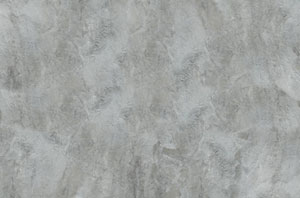
Polished plaster is a common term for the finish of some plasters and for the classification of updated types of conventional Italian plaster finishes. The name "Polished Plaster" is in fact used to describe a rather wide array of good quality plaster finishes, from more rugged looking textured plasters to very highly polished Lucidato, Venetian and Marmorino plasters. Polished plaster is largely used internally, on ceilings and walls, to supply a finished surface that appears like polished travertine, marble or limestone. Polished plaster is smooth when touched whilst offering natural shade variations and a distinct sense of depth. Distinctive bespoke finishes can be created by mixing these different forms of plasters. Through the use of natural or artificial colourants, eye-catching tints or colours can be applied to the polished plaster finish. If you need to create a "marbled" effect in your Venetian plaster, or unique designs or colours which do not exist naturally, the capability to add a tint to Venetian plaster is particularly helpful. For additional information about polished plaster, it is recommended that you check out the Wikipedia "Polished Plaster" page.
Plaster Grangemouth
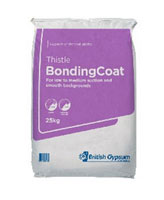
What is Plaster? - Plaster is a common building material that's used for decorating or protecting walls and ceilings in Grangemouth, and for creating decorative components. What we call "plaster" in the United Kingdom is normally looked at as the stuff that's used for coating the inner rooms of homes and buildings, whilst that which is used on outside walls is known as "render" or "rendering". The most commonplace forms of plaster generally contain either cement, gypsum, or lime, although all work in a similar way. Blended with water to create a stiff but easily workable paste, plaster is simply a fine, dry powder at the time of manufacture. The mixing of the water and plaster causes a reaction, and heat is produced through crystallization, making the resulting paste harden. For buying plaster or plastering products you can head to Travis and Perkins, Wickes, Screwfix, B&Q or British Gypsum. (Tags: Plastering Grangemouth, Render Grangemouth, Plaster Grangemouth)
Screeding Grangemouth
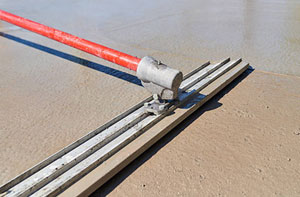
Screeding calls for the pouring and spreading of a cement mix, to produce a flat and smooth floor surface. Most often screeding will be applied on top of a concrete sub-floor to be used as a finished hardwearing floor surface, to take on the final floor finish or to encase underfloor heating pipes. This will increase the life of a floor and assure its durability, quality and finish, for many years. Screed should only be mixed by hand when relatively small areas of floor are being worked on. For more substantial projects, a reliable screed pump must be used to guarantee a smooth and even blend of cement, sand and water, which is then pumped straight to the desired location. Different types of screeding are used including: bonded screed, fast drying screed, unbonded screed, traditional screed, structural screed, free-flowing screed and floor levelling compound.
Plaster Skimming Grangemouth
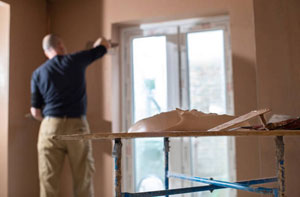
A thin covering of plaster spread over the top of old damaged plasterwork, plasterboard or unwanted artex is referred to as skimming or re-skimming. This is certainly one of the most common tasks which plasterers are asked to carry out. Plenty of home refurbishments call for new dry lined walls or cause damage to pre-existing plasterwork surfaces. A specialist will make such imperfect surfaces ready for wallpapering or painting by applying a glass-like and flat finish. You should leave this for a few days to dry out thoroughly before you can decorate on top of it. You should finish up with a totally flat and fault-free surface which will endure for years.
Tools for Plastering
Most DIY and tradespeople's tool boxes do not include a lot of the specialist tools that are essential for plastering, which is why it's normally best to seek the help of a qualified plasterer in Grangemouth, when you've got this kind of work that needs to be done. The following are just a handful of the tools that an experienced Grangemouth plasterer will use on the job:
- Plaster Buckets & Pan
- Plastering Rule
- Feather Edge
- Taping & Jointing Knives
- Scarifier
- Plaster Mixing Paddle
- Edging Trowel
- Dry Lining Rasp
- Plasterer's Hawk
- Plasterer's Trowel
- Finishing Trowel
- Board & Door Lifter
Decorative Plastering Services Grangemouth
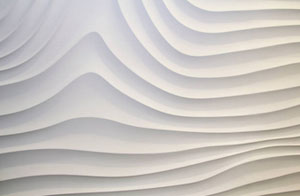
Plastering is by no means a modern day technique and was being accomplished by the ancient Egyptians, Romans and Greeks countless years ago. The ingredients used would of course have differed in those long forgotten days, when concoctions of both clay and mud would have been used. In London during the 13th Century, plaster was put on the walls of buildings as a defence against the spread of fires. As you'll discover when you visit buildings of this time period, creative gypsum features and mouldings were extensively produced in Georgian and Victorian times. Impressive decorative effects using age-old techniques and modern materials can be created by talented, professional plasterers today. This may include the application of brackets, cornices, coving, corbels, ceiling roses, dentils and niches.
Plastering Courses Grangemouth

Plastering Courses Grangemouth: The most effective way to either learn the fundamentals of the art of plastering or to acquire the necessary knowledge and skills to begin a career in plastering is to take a plastering course at a local training centre or college. For both beginners and tradesmen eager to develop their plastering techniques, you will find that there are an array of plastering courses available. Plastering courses are available for both NVQ and City & Guilds with alternatives for either complete novices or intermediate tradespeople. Beginners courses in plastering (level 1) cover skills like installing sheet materials, applying floating coats, putting on set coats (to walls), mixing plaster materials, making ready background surfaces and applying scratch coats (to walls). Advanced (level two courses and diplomas) deal with stuff like dry lining/plasterboarding, fibrous plasterwork, reverse moulding for fibrous work, plastering to exterior backgrounds and cement and sand screeding. To find out about currently available plastering courses in Grangemouth and nearby, try searching on Google or Bing. You can check out NVQ, City & Guilds and Diploma courses in plastering and dry lining by heading HERE. (Tags: Beginners Plastering Grangemouth, Plasterers Courses Grangemouth, Plastering Lessons Grangemouth, Plastering Courses Grangemouth)
Rendering
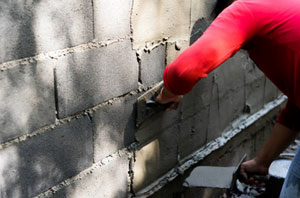
The process of applying a mixture of lime, cement, sand and water to both interior and exterior walls to achieve a smooth or textured surface, is known as rendering, which is a fairly similar trade to plastering. Rendering is particularly common in the Mediterranean countries, but is also very popular throughout Southern Europe. A rendered finish is mostly employed for cosmetic reasons but is additionally waterproof and has got some fire resistant properties. While it is of course possible to paint a rendered wall, an even better solution is to mix colour into the render itself, giving a more long lasting, durable end result. (Tags: Renderers Grangemouth, Rendering Grangemouth)
Artexing Grangemouth
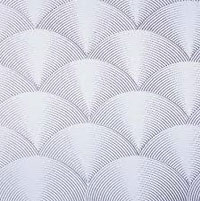
Artexing Grangemouth: Especially popular in the 1970's and 1980's, artex has long been an excellent way to add a decorative finish to a ceiling, as well as to hide uneven surfaces and cracks. Whilst previously there were lots of tradesmen who did very little else but apply artex and do artex patching, currently it is not quite as easy to find a plasterer that will tackle artexing. What enhanced its attractiveness was probably the broad range of designs it could be applied in, and it appeared to be the case that everyone had their favourite, possibly it might have been broken leather, pairs, hook & line, bark, swirl, circles, criss-cross, medusa, scroll, stipple or basket. No matter what your taste was, you would be able to find a design of artex to fit. It is of course still perfectly possible to get any one of these artex ceiling patterns done today, you'll just have to locate a craftsman (a plasterer rather than a handyman) ready to do it. With that said, it should be pointed out that artex is somewhat challenging to repair or patch and it's almost certainly because of this that its use waned. (Tags: Artex Patching Grangemouth, Artex Removal Grangemouth, Artex Grangemouth, Artex Repairs Grangemouth, Artexing Grangemouth)
Plasterboarding (Dry Lining) Grangemouth
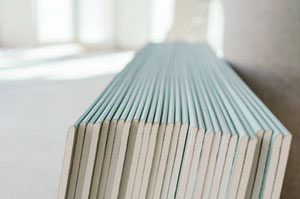
Dry Lining Grangemouth: Quite a few plasterers in Grangemouth also provide dry lining services, which will be required in a lot of home improvement projects. Dry lining is the procedure where plasterboard is fixed to a wood studding or joist, a brickwork surface or metal Gypframe to form a wall surface that doesn't need plastering. At times the plasterboard itself can be painted, though generally it will be skimmed with a thin coat of finishing plaster, which can be wallpapered or painted without filling. In terms of fittings, when fixing to a brickwork wall the "dot and dab" method is used, when attaching plasterboard to timber joists or studding, drywall screws or nails are used and when attaching to a metal Gypframe self-tapping (or Jack-Point screws) are used.
Plaster Patching Grangemouth
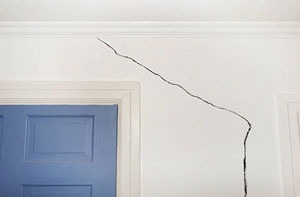
Plaster Patching Grangemouth: If you've got an older property, or have recently had a bit of construction work carried out on your home in Grangemouth, it's quite likely that you could have cracked or weakened plaster that needs to be patched or repaired. As the plaster is a vital component of your wall's surface, you'll want to keep it in great condition so it can be decorated and kept tidy. Cracked or crumbling areas of plasterwork and parts that have been thoughtlessly mended with Polyfilla, look horrible and spoil the appearance of your house. A professional Grangemouth plasterer will quickly have your walls looking good once again, and you will be able to complete your decorating and get them looking in perfect condition once again. Factors like accidental damage, settlement, vibration, dampness and shrinking can cause issues with plaster walls. Ahead of carrying out any patching or repair work it is important to resolve any underlying problems, as damage will more than likely reoccur if not sorted out beforehand. (Tags: Plaster Patching Grangemouth, Plaster Repairs Grangemouth, Plastering Repair Grangemouth, Patching Plaster)
Plasterer Grangemouth
A tradesman who exclusively works with plaster materials, a plasterer in Grangemouth is a specialist who carefully spreads a smooth layer of prepared plaster over previously rough and irregular surfaces, which can then be decorated. As an occupation, plastering has existed for many many hundreds of years, and as a technique in construction for even longer. Plaster in today's times, is mainly used on the interior walls of commercial and domestic buildings, to generate an even and smooth surface on which to administer the final finish. Plaster can also be employed to form decorative mouldings which can be used to embellish walls and ceilings. Playing a vital role in lots of home revamping projects in Grangemouth, the plastering process can also be used in the the construction of attic conversions, porches, garages and extensions. (Tags: Plasterers Grangemouth, Plastering Grangemouth, Plasterer Grangemouth).
Plastering Tasks Grangemouth

Grangemouth plastering specialists will likely help with concrete plaster Grangemouth, Venetian polish plaster in Grangemouth, floor levelling, skimming over plasterboard, tyrolean rendering, asbestos testing in Grangemouth, external rendering and screeding, the rendering of concrete in Grangemouth, overskimming plasterwork, plastering over artex, rendering with sand and cement in Grangemouth, wet dashing, magnetic plaster, blown plaster in Grangemouth, lay in grid suspended ceilings in Grangemouth, polymer screeds Grangemouth, dragged plaster Grangemouth, recessed TV walls, dot and dab walling, pitted plastering, patch plastering, metal studding partitioning, float and set plastering, dry lining and plastering ceilings in Grangemouth, flood and fire restorations, professional plasterers Grangemouth, floor levelling and screeding, lime rendering, coloured K Rend, relief plastering and other plastering work in Grangemouth, Falkirk.
Grangemouth Plastering Services
- Grangemouth Internal Rendering
- Grangemouth Plaster Patching
- Grangemouth Plaster Re-Skimming
- Grangemouth Polished Plaster
- Grangemouth Cornice Installation
- Grangemouth Plaster Repairs
- Grangemouth Latex Screeding
- Grangemouth Plastering
- Grangemouth Float and Set
- Grangemouth Artex Covering
- Grangemouth Plasterers
- Grangemouth Domestic Plastering
- Grangemouth Plaster Skimming
- Grangemouth Dry Lining
Other Useful Trades in Grangemouth Falkirk

Of course, when you happen to be doing home renovations in Grangemouth, Falkirk, you'll probably need all kinds of different tradespeople and apart from a plasterer in Grangemouth, Falkirk, you might additionally need dry lining in Grangemouth, polished plaster in Grangemouth, screeding specialists in Grangemouth, electric socket installation in Grangemouth, external rendering in Grangemouth, painters & decorators in Grangemouth, cleaners in Grangemouth, bricklaying in Grangemouth, plasterboard installation in Grangemouth, artexers in Grangemouth, builders in Grangemouth, pebble dashing in Grangemouth, rubbish removal in Grangemouth, external wall insulation in Grangemouth, wall tiling in Grangemouth, carpenters in Grangemouth, plaster mouldings in Grangemouth or cornice installers in Grangemouth.
 Plasterers Grangemouth
Plasterers Grangemouth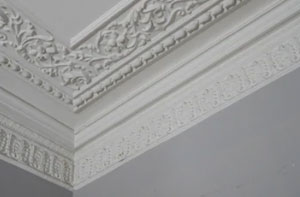 Plastering Near Me
Plastering Near Me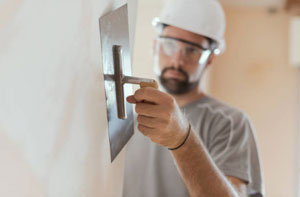 Plasterer Grangemouth
Plasterer GrangemouthPlastering Jobs Grangemouth: Browse plastering jobs in Grangemouth here: Plastering Jobs Grangemouth
More Falkirk plasterers: Larbert Plasterers, Grangemouth Plasterers, Falkirk Plasterers, Denny Plasterers, Bo'ness Plasterers and Bonnybridge Plasterers.
Plaster Skimming Grangemouth - Screeding Grangemouth - Plasterers Grangemouth - Plasterboarding Grangemouth - Coving Grangemouth - Decorative Plastering Grangemouth - Cheap Plasterer Grangemouth - Plastering Grangemouth - Plasterer Grangemouth





